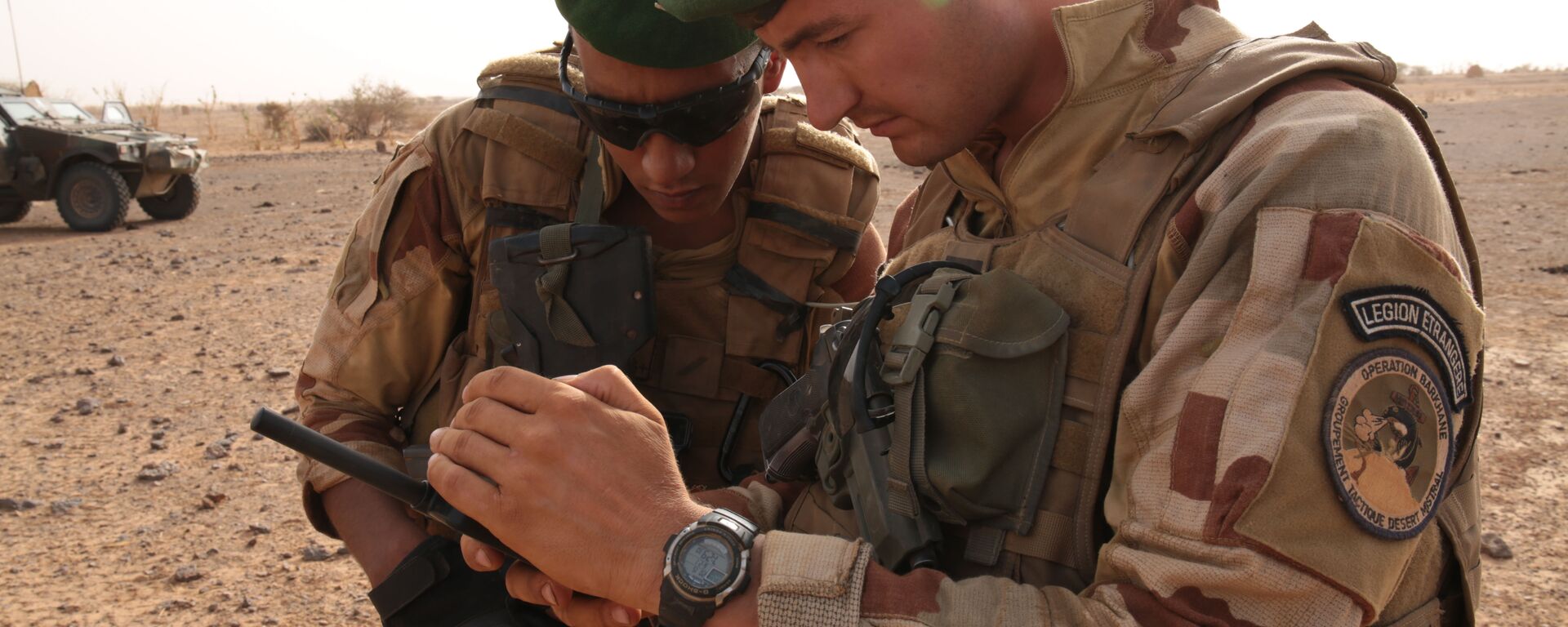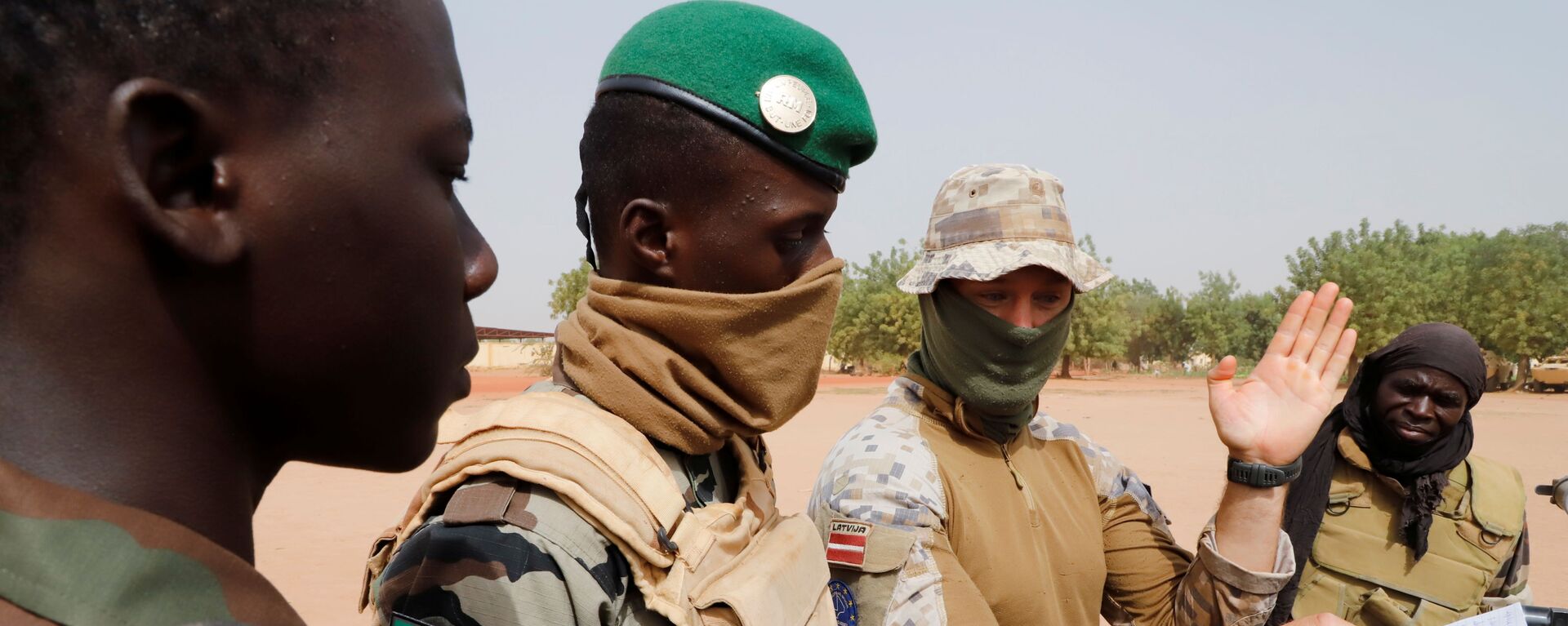France's 10-Year War in Sahel: Colonialism Legacy, Regime Changes & Control Over Uranium
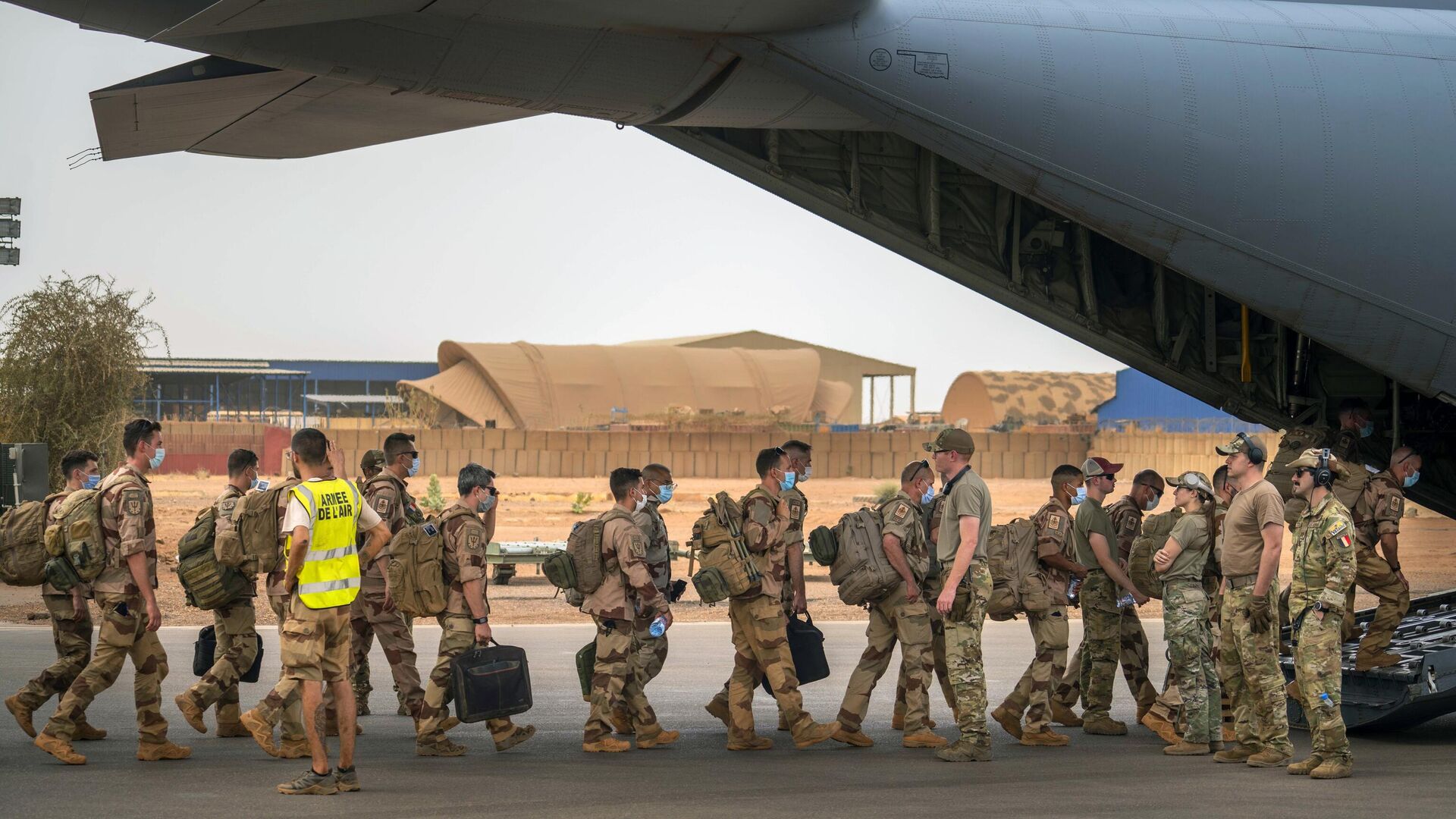
© AP Photo / Jerome Delay
Subscribe
Longread
On January 11, 2013 Paris' Operation Serval kicked off in Mali, opening the door to the broader military Operation Barkhane in the Sahel. 10 years later, France withdrew from the region, leaving a gap in the West African state's security that has since been filled by Russians.
"The French explain their withdrawal from the Sahel by the fact that they were supposedly forced out by the Russians. This is not true, they left on their own," Galina Sidorova, doctor of political sciences (Ph.D., Dr. habil.), professor at the Diplomatic Academy of the Russian Ministry of Foreign Relations, professor at the Moscow State Linguistic University, and scientific associate of the Institute for African Studies, Moscow, told Sputnik.
"After the departure of the French, their shoes were filled by a more operational and decisive force – the Russians. The Malians had little if any alternatives. And they turned to the force that has already proven its ability to solve a similar problem in the Central African Republic (CAR)," the professor continued.
The French government decided to withdraw its troops from Mali in June 2021 and completed the pull-out in August 2022. Prior to that, Paris’ relations with Bamako had substantially deteriorated following the deposing of Malian President Ibrahim Boubacar Keita by the Malian Armed Forces on August 18, 2020 and his subsequent official resignation the following day.
"Keita was absolutely a puppet, absolutely dependent on the Elysee Palace, and corrupt," historian Dr. Vasily Filippov, lead researcher at the Center for Tropical African Studies at the Institute for African Studies at the Russian Academy of Sciences, told Sputnik. "Accordingly, all this led to the complete degradation of the [Malian] political system. There was nepotism and corruption from bottom to top. As a result, senior officers of the Malian Army came up with the idea: 'Do we need such a president?' Eventually, he was ousted."
According to Filippov, the removal of Keita was relatively bloodless and was followed by two coups greeted with enthusiasm by the citizens of Mali, who took to the streets waving Russian flags and carrying photographs of Russian President Vladimir Putin.
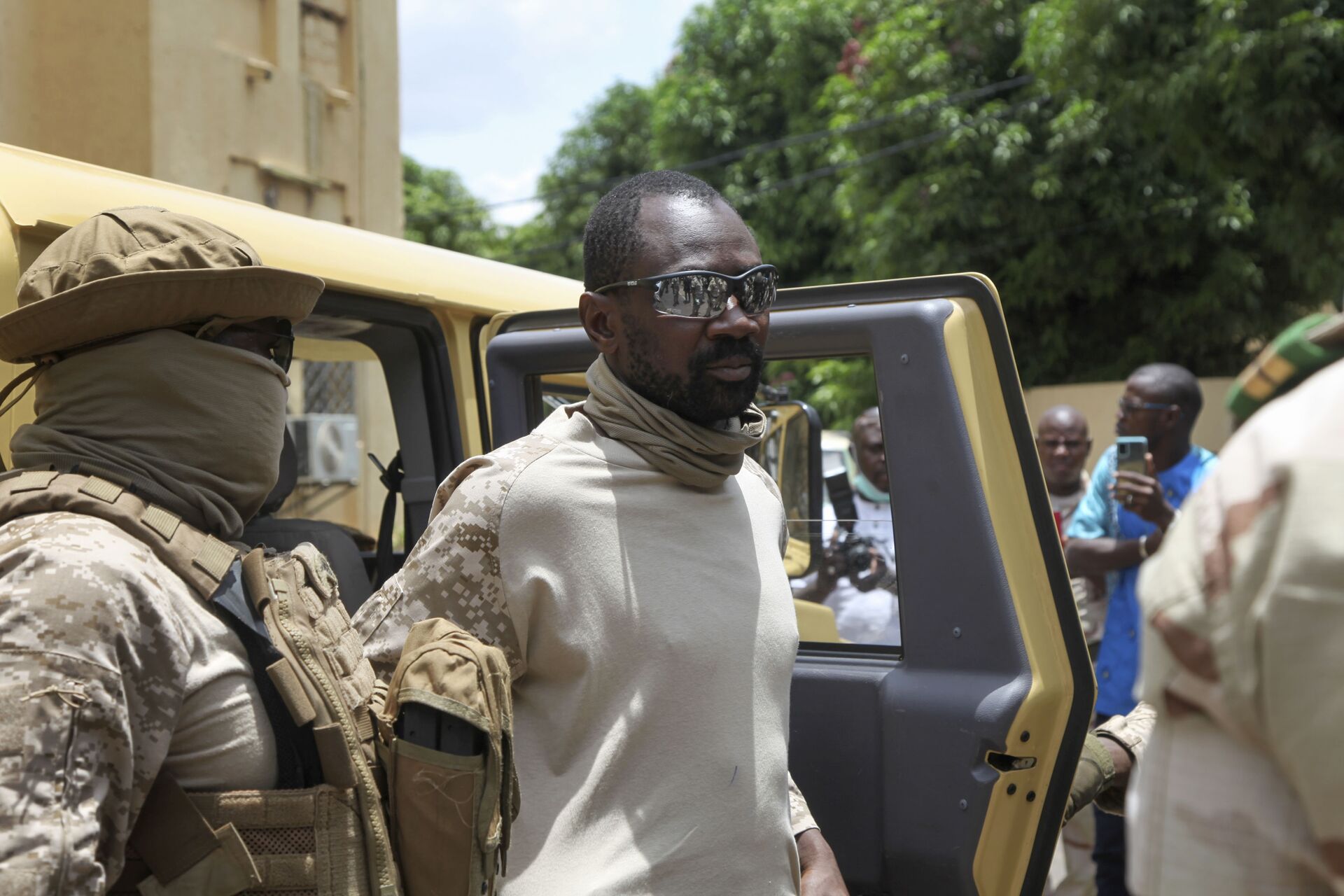
In this Monday, Aug. 24, 2020 file photo, Col. Assimi Goita, declared himself the leader of the National Committee for the Salvation of the People, arrives to meet with a regional delegation at the Ministry of Defense in the capital Bamako, Mali.
© AP Photo / Baba Ahmed
It appears that the French failed to find common ground with interim President Assimi Goita, who took power on May 24, 2021. In June 2021, French President Emmanuel Macron announced the termination of the nation's counter-terror activities in the Sahel and the 5,000-strong military contingent's pullout.
In September 2021, Bamako reportedly requested assistance from Russian private military contractors, while in December 2021, Russian private military company (PMC) the Wagner Group arrived in Mali to boost security in the war-torn country.
An April 2022 survey, conducted by Friedrich-Ebert-Stiftung, a German political foundation, indicated that 93.5% of Malians are aware of Russian military instructors' presence in the country, with over nine out of ten respondents (92%) believing the Russians will help Mali regain its territorial integrity. At the same time, the poll demonstrated that 73% of Malians are dissatisfied with France's counter-terrorist activities, which failed to protect locals from violence and stabilize the situation.
Even though France officially wrapped up its Sahel mission in November 2022, Paris is apparently trying to keep control of the situation on the ground. In August 2022, Malian Foreign Minister Abdoulaye Diop accused France of supporting terrorist groups inside the African country in a letter to the United Nations Security Council (UNSC), a copy of which was obtained by Sputnik. Diop noted that since the beginning of 2022, French aircraft have illegally crossed Malian airspace more than 50 times "to collect intelligence for the benefit of terrorist groups operating in the Sahel and to drop arms and ammunition on them."
Operations Serval & Barkhane
Operation Serval was launched in January 2013 to thwart the advance of Tuareg separatists and Islamic fundamentalists. After the liberation of cities in northern Mali, the operation stalled as Tuareg nomads dispersed across the desert and the mountains of the Sahel and became inaccessible to massive strikes.
Operation Barkhane, which started in August 2014 and expanded the French presence to approximately 5,500 troops in Mali, Burkina Faso, Niger, Chad, and Mauritania, was not much different from Operation Serval, according to Sidorova.
It turned out that the objectives of the French and Malians did not actually coincide, the professor pointed out. The Malians were interested in stabilization within the country, especially in the Saharan zone, and the reduction of pressure from the Tuareg tribes, while the French were more interested in the 'display of the flag,'" according to her. The French military was not active in conducting counter-terrorism operations, which triggered serious disagreements between the Malians and the French.
"Until now, the state is split, in fact, into two parts," noted Filippov, arguing that the French failed to reach their declared objectives. "Tuareg separatists control most of the northern territories. As for the fight against the Islamists, the situation here is completely disastrous, because the terrorist activity of the Islamists in the northern territories (...) is growing and, most likely, will continue to grow."
In fact, by kicking off Operation Serval and later Operation Barkhane, France sought to reach its own geopolitical and economic goals, according to the academics.
"Even in the 21st century, France is trying to play first fiddle in its former colonies and, moreover, is trying to extend its influence to other regions of Africa as well," Sidorova said. "Mali is of interest to France primarily from the point of view of control over uranium deposits. Operation Serval was a well-planned politically, well-thought-out action, necessary for the authorities to continue their presence in Mali, exactly, as well as in the Sahel zone, to maintain this control."
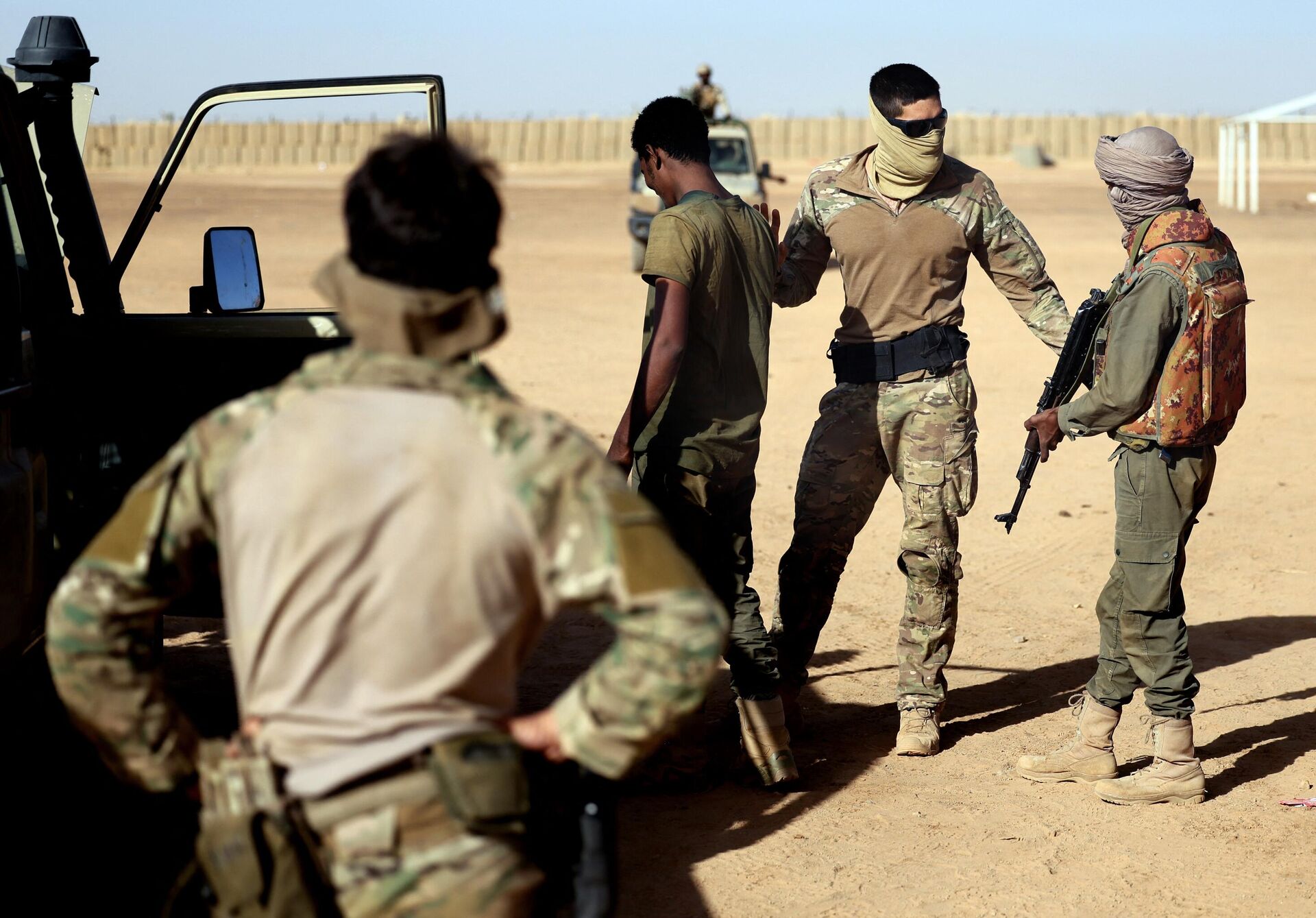
A French Marine Special Operation Forces officer trains Mali's FAMA soldiers as new Task Force Takuba multinationals military mission in sub-Saharan Africa's troubled region, in the Mali's Menaka army base, on December 7, 2021.
© AFP 2023 / THOMAS COEX
The timing of the French operations is by no means coincidental, Dr. Vasily Filippov remarked. Prior to the military campaign, Mali's democratically-elected President Amadou Toumani Touré started to expand cooperation with the People's Republic of China. For its part, Beijing was interested in the Mali area of the Sahel due to the rich uranium deposits in the north of the country. The growing sympathy of Touré towards China prompted the French security forces to step in and arrange a coup d'etat in March 2012.
The ouster of the Malian president coincided with an increase in attacks by Tuaregs and Islamist guerillas reinvigorated by the 2011 NATO intervention in Libya and the eventual collapse of the North African state.
Interim Malian President Dioncounda Traoré, who governed the country from April 2012 to September 2013, announced a general mobilization. According to Sidorova, the Elysee Palace obviously pulled Traoré's strings. In January 2013, he sent a letter to UN Secretary-General Ban Ki-moon and French President Francois Hollande, asking for immediate military assistance to Mali. The very next day, the French operation kicked off, she noted.
Likewise, Traore's successor and another Elysee Palace protégé, Ibrahim Boubacar Keita, gave the greenlight to Operation Barkhane and the continuous presence of the French in the Sahel, which allowed the latter to maintain control over Mali's mineral wealth, according to the academics.
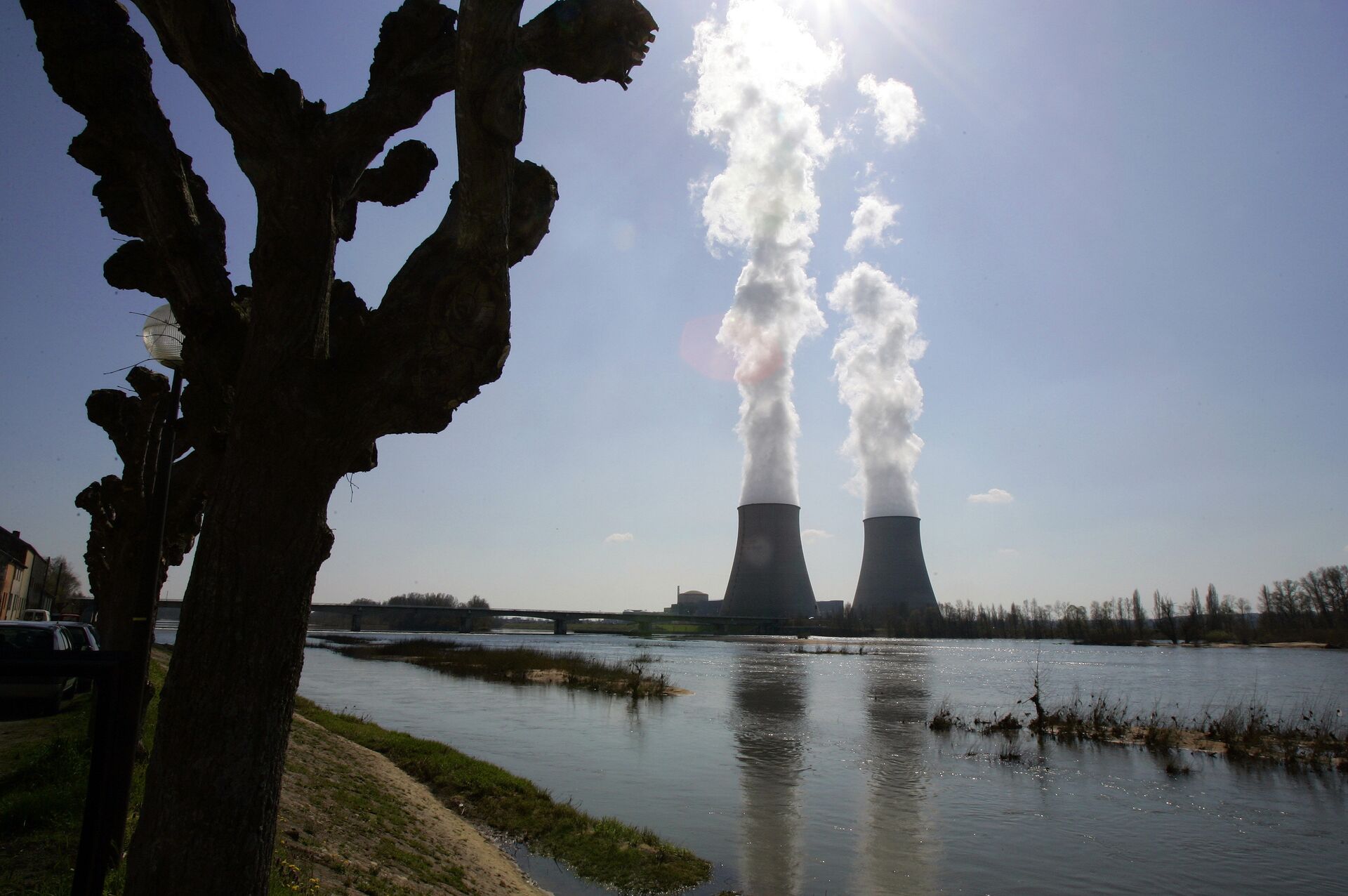
General view of the Belleville-sur-Loire's nuclear plant in France.
© AP Photo / Francois Mori
Sahel's Uranium Wealth
According to some estimates, Mali's uranium deposits could reach 100,000 tons of U3O8, with the average uranium content in the ore at 0.085%. To the east of Mali lie Niger's uranium fields, which have long been exploited by Areva (now Orano), a French multinational group specializing in nuclear power.
"[Orano] is a corporation that is involved in the extraction of uranium ore, processing, and shipment to France," Filippov explained. "And this company appears to be very shady and corrupt. One way or another, they have plundered Mali for several decades. That is why there is so much poverty there – not only in Mali, but in general in the entire Sahel region. The major task of the French is not to lose control over the Sahel uranium."
Filippov earlier quoted the press suggesting that the northeastern region of Mali and the adjacent Nigerien territories, which are both controlled by the Tuaregs, could be areas of illegal uranium mining.
The world uranium market was long under the political control of France, which did not allow others to use the uranium deposits of Africa, remarked Sidorova.
Currently, Areva (Orano) extracts around 3,000 tons of uranium per year in Niger. This uranium provides a third of the annual needs of French nuclear power plants, according to Filippov. Coupled with the Malian uranium reserves, these resources could solve France's energy dilemma for decades to come.
France is one of the most nuclear-powered countries in the world; it derives over 70% of its electricity from nuclear energy with its fleet of 56 nuclear reactors. "Under the conditions of the ongoing horrible energy crisis, [uranium deposits] are of great importance for the French," the professor noted.
However, now the French have to leave the Sahel, being seen not as allies, but as a hostile force by the region's African nations, according to the academics. France's military withdrawal from Mali was accompanied by anti-French protests in Niger and Burkina Faso. It appears that the entire Sahel region is turning its back on the former colonizers.
Who Will Help Sahel Gain Stability?
What’s next? According to Filippov, it's unlikely that the French will regain control of the Sahel anytime soon in the aftermath of their military and political failures. The academic does not rule out that China and Russia will eventually replace the French in the region.
"Russian bayonets and Chinese money will, apparently, grow more and more strong [in the region] and it is unlikely that anyone will have the courage and strength to challenge them," the professor noted.
At the same time, he expects that the US will try to undermine Moscow and Beijing's positions in Africa and attempt to fill France's shoes in the Sahel.
For her part, Sidorova forecast that Russia has good prospects in the region and the continent in general.
"Russia is building up cooperation between the defense departments and law enforcement agencies of Africa," she highlighted. "This demonstrates that our country has found its niche in Africa. To be more precise, Russia never lost it. Currently, the process of interaction has accelerated significantly, especially after the Russia-Africa summit in 2019. Russia has strong intelligence services capable of helping to neutralize terrorist organizations and, as a permanent member of the UN Security Council, it can support the African Union in finding political solutions to resolve crisis problems. [Russia] can also support peacekeeping forces in Africa in cooperation with the union and the states of the continent."

